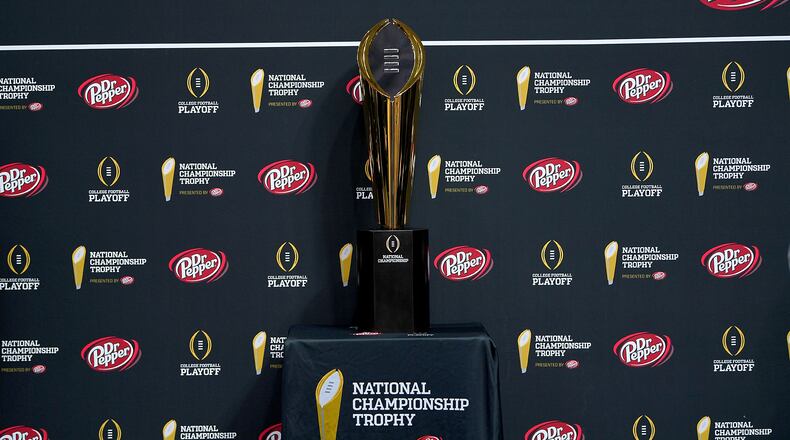>>More Big Ten Media Days coverage: Buckeyes meet the media | 5 things Ryan Day had to say | Youngsters expected to add depth up front
Outgoing commissioner Jim Delany was the first person at Big Ten Media Days to call into question how the CFP committee has come up with its selections in the first five years of the playoff, and two coaches echoed his concerns the following day.
“The best I can hope for is that the College Football Playoff committee, as their members turn over and change — and there's a lot of change in that group, they're good people with good intentions and good football awareness — pays more attention to the founders' effort to value strength of schedule as well as winning conference championships,” Delany said Thursday. “The actual language in the founding document says, ‘when comparing teams with similar records and similar resumes, should look at strength of schedule as well as winning conference championships.’
“I'll leave it to each individual to see whether or not you believe they have. Clearly Alabama and Clemson have separated themselves, and they have deserved everything that they've earned in the last couple years. But I'm not sure that the strength of schedule or the conference championship has been adequately rewarded, in my personal view.”
>>RELATED: Could schedule cost Big Ten a playoff berth again?
The Big Ten was not represented in the past two playoffs, and the conference’s champion has not been chosen for the final four since Michigan State in 2015.
One-loss Ohio State made it in 2016 despite having lost to conference champion Penn State, who lost two games and was left out.
Ohio State went 11-2 and won the Big Ten but was the first team out in 2017, when the SEC had two representatives (league champion Georgia was joined by a one-loss Alabama team that did not qualify for its conference championship game).
Last year, the one-loss, Big Ten champion Buckeyes not only missed the playoff again but were ranked sixth, one spot behind a Georgia team that went 11-2 and lost the SEC championship game to undefeated Alabama.
That decision left many scratching their heads given the criteria Delany cited above.
Credit: DaytonDailyNews
For the second year in a row, Penn State coach James Franklin was among those wondering if it is fair some conferences (including the Big Ten) play a nine-game conference schedule while others (including the SEC) play just eight league games.
“Obviously I think the nine conference games is something that needs to be discussed,” Franklin said Friday. “When you play nine conference games, you're going to have more losses within your conference, just obviously mathematics tell you that.
“The hard part I think with that is the set of criteria that you've been told are going to impact being able to make the playoffs, strength in schedule and things like that. There's a lot of variables there. There's a lot of things you can't control. And also the people that are in that room are different every single year.”
Jim Harbaugh agrees Michigan should be the Big Ten favorite https://t.co/FlyqMABzVo
— Marcus Hartman (@marcushartman) July 19, 2019
Northwestern coach Pat Fitzgerald went a step farther in his criticism of the playoff setup, comparing it (unfavorably) to its predecessor, the widely unpopular Bowl Championship Series that pitted the two top-rated teams against each other in a winner-take-all game for the national title from 1998-2013.
“I think the nine league games are great for our fans, I think it's great for our guys from a competitive standpoint, but to me to have a true champion we have to have the same data points, and until we do that, it's not any different in form from the BCS, it's just a different name,” Fitzgerald said.
He also called expansion of the playoff inevitable.
"But again, I think for me it's all the details that come along with that,” he said, referring to how resumes would be compared between teams. “I just want to get our program in position to be in Indianapolis (for the Big Ten Championship Game) and then get in that conversation, but to (include) five Power 5 leagues, your Group of 5 champions, your independents, to have I think a true champion that's won on the field, we've got to have shared data points.”
About the Author

